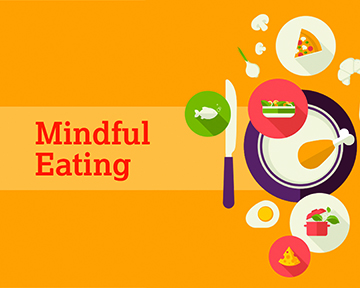
by Glendale Sports Center | Jun 25, 2021 | Feature Story Bottom Left
 by Sandy McClain, Senior Director of Human Resources, YMCA of Metro Denver
by Sandy McClain, Senior Director of Human Resources, YMCA of Metro Denver
“My hope is that after years of summer camp at the YMCA, Ten can come back as a counselor someday,” said Giovanna, whose son Tennyson attends YMCA summer camp where he is “surrounded by awesome staff that make him feel special while having amazing experiences.”
More than 1,400 youth are in YMCA summer day camp this summer at locations across the Denver Metro area. After a difficult school year, with remote learning and isolation from friends, it’s an exciting summer for kids to get back to being kids.
Camp is the place where youth make friends and build character. They are part of a community, a safe place to learn how to be more independent but also how to contribute to a group as they engage in physical, emotional and educational activities.
Camp teaches self-reliance, a love of the outdoors and where kids foster leadership skills. Caleb J. attends YMCA Day Camp and his camp counselors can’t say enough about his leadership skills in welcoming in new kids while his adoptive mom says the skills he’s learned at camp extend to his responsibilities at home.
Those skills learned as a camper at the Y can be taken into any future job and career. The Y gives youth early work experience, employing 61,000 college-aged young adults at camps across the country each year. Further, a summer position at the Y can be a launching pad for a long-term career within the YMCA. YMCA of Metro Denver staff members Giovanni Forrest and Claudia Nunez-Medina were counselors at Camp Chief Ouray at YMCA of the Rockies and today serve in roles in our Solution Center and at our Downtown YMCA. Co-workers Abby Kenner and Darren Krische began their Y careers as day camp counselors together at the YMCA and today are leaders for the Youth Development team.
While summer is the busiest season, the YMCA of Metro Denver offers both seasonal and year-around career opportunities. If you want to make a difference in a child’s life and gain lifelong experience, join us. Visit denverymca.org/employment.

by Glendale Sports Center | May 26, 2021 | Feature Story Bottom Left
 by Elizabeth Bravman, Nutritionist, Healthy Heart Ambassador, Cycling Instructor, YMCA of Metro Denver
by Elizabeth Bravman, Nutritionist, Healthy Heart Ambassador, Cycling Instructor, YMCA of Metro Denver
We all know that WHAT we eat is very important for our overall health. But did you know that thinking about WHY and HOW you eat can bring your wellness to a whole new level? Practicing Mindful eating can help us do just that.
The opposite of “mindful” eating is “mindless” eating. What is that?
- Have you ever eaten a quick breakfast in the car?
- Eaten lunch while doing work at your desk or dinner in front of the TV?
- Snacked right from a large bag or container while you scrolled through your phone?
If you answered yes to any of these questions, then you have mindlessly eaten. You are not alone. Most Americans practice some sort of disconnected eating every day. Food is part of our culture, and we have a distorted view of portion sizes. Plus, we love to multitask which is the perfect recipe for mindless eating. These habits can lead to overeating, weight gain and serious health risks.
Mindful eating can help us avoid the pitfalls of mindless eating and bring us back in touch with how and why we eat.
Stay connected by pausing and asking these three why and how questions:
- Am I truly hungry? Seems like an easy question but since we live in a toxic food environmen
 t that is constantly sending us external messages about eating, it can be difficult to tap into those internal cues of hunger. Sometimes it’s a clock telling us to eat, we see or smell food or we are in a social setting, and we eat regardless of being hungry.
t that is constantly sending us external messages about eating, it can be difficult to tap into those internal cues of hunger. Sometimes it’s a clock telling us to eat, we see or smell food or we are in a social setting, and we eat regardless of being hungry.
TIPS: Put sticky notes near your fridge, pantry, plates/bowls or silverware with this question written on it. Set up an alert in your phone that asks you this question. Often hunger can be confused with thirst, have a large glass of water while trying to decide!
- Am I satisfied? Satisfied — not full or stuffed. It takes about 20 minutes for hormones in your body to signal your brain that you are full. It’s best to stop eating when you first start to feel satisfied.
TIPS: Check in with yourself about halfway through your meal to see how you may be feeling on the satisfied scale. Take your time! Try placing your silverware down in between bites, use your non-dominant hand or chopsticks to eat to help slow you down. Set a timer for 20 minutes. If you finish before then and you think you might still be hungry, get up from the table, do dishes or take a walk, before checking in with yourself to see if you still might be hungry. If the answer is yes, then honor your hunger and eat more!
- Am I eating because I am sad, bored or stressed? Often, we eat because we are feeling something else and not hunger. Addressing these feelings directly will help avoid emotional eating.
TIPS: If you notice you want to eat because you have one of these occasional emotions, a swap can help you process the emotion. If you want to eat because you are bored some great swaps are going for a walk, listening to a podcast, calling/texting a friend or cleaning. A swap for stressed emotions may be exercise or venting to a friend. Sad or lonely? Call/text a close friend, journal, or try a warm bath or a funny TV show. It is important to note that if these emotions are intense and/or frequent, seek support from a health professional.
- Am I eating with distractions? With distractions we miss our internal cues of satiety and may overeat. Remove technology, work, reading materials, or other distractions while eating. Be present and focus on enjoying your food.
TIPS: Sticky notes or alerts on your phone to put away all distractions can help. Saying a blessing over your meal or acknowledging where your food has come from and how many hands were involved in bringing it to your table can also bring your focus to eating.
- Am I setting myself up for success with appropriate portion sizes? Portion sizes should not matter if you are paying attention to your internal cues but… we’re human and studies show that large portion sizes push people to overeat!
TIPS: Learn average portion sizes for you. Don’t eat directly out of containers or bags, portion into smaller plates and bowls. Using smaller plates and bowls will make you feel like you have more. Don’t forget to check in with yourself — some days the average portion size might be too much or not enough depending on what is going on in your life!
- Am I enjoying my food? Food should taste good, and eating should be enjoyable!
TIPS: Sit down and simply observe your food — its textures, colors, and smells. Chew slowly, noticing flavors and sensations. If you are in a group, it’s fun to experience this together, making observations and comparisons. Journal about your food. With children, it’s great to play games where everyone closes their eyes and describes their first bite in detail.
The act of pausing and bringing your attention to why and how you are eating may open your eyes to certain aspects of your eating that can be improved. Be curious in a non-judgmental way. Notice your answers and consider the factors influencing you.
Be gentle on yourself as you start to practice thinking about why and how you eat. Try to incorporate just one question into your day and make sure it’s one that feels doable to you right now. Try something like: “I will not use any technology or have any distractions during lunch on Tuesdays and Thursdays this week” or “I will not eat chips right from the bag on Friday nights.”
This is a lifelong practice with the goal of simply becoming more mindful at eating. The more you practice, the easier it gets.
If you need any nutritional support, the YMCA of Metro Denver’s nutrition team can be contacted through denverymca.org.

by Glendale Sports Center | Apr 23, 2021 | Feature Story Bottom Left
 by Claudia Morlan, YMCA of Metro Denver
by Claudia Morlan, YMCA of Metro Denver
Senior Director of Communications
“The reason I became a lifeguard is water safety,” said Bryan Castellano Pineda, a part-time lifeguard and swim instructor at the YMCA of Metro Denver. Pineda reflects on a near drowning his brother experienced when they were kids, and he recalls “I want to prevent things like this from happening.”
May is National Water Safety Month and as we approach Memorial Day and the start of summer fun, safety in and around the water should be on the list of basic life skills to keep children healthy.
Drowning is the second-leading cause of unintentional injury-related death for children ages 1 to 14 years old. The problem is particularly acute among minority communities. For example, African American children ages 5 to 14 are three times more likely to drown than their white counterparts. Additionally, 79 percent of children in families with household income less than $50,000 have no/low swimming ability.
During summertime and year-round, the YMCA offers these water safety tips and resources:
Be aware. When swimming, parents are urged to get in the water with their young children and stay within arm’s reach. Children who are old enough to swim on their own should be actively watched and should swim only when and where a lifeguard is on duty. Parents can also have their children “tested” by the lifeguard to ensure they have basic swimming skills and can swim strong independently.
Review and follow pool rules. Children should understand and follow pool rules and lifeguard orders. In addition, they should know their abilities and limits and be taught not to take chances with going in too deep or playing breath-holding games.
Take swim lessons. Research shows that participation in formal swimming lessons can reduce the risk of drowning among children 1 to 4 years of age. Swim lessons teach participants how to tread water, move in the water, and do basic strokes, building skills and confidence that can be the difference between life and death. The YMCA offers swim lessons at outdoor community pools across the metro area and at our University Hills, Littleton, Southwest and Arvada YMCAs.
If children know how to stay safe in and around water, swimming can be a lifelong source of fun and exercise. Don’t keep your children away from water but help them learn fundamental water safety skills. Classes can provide a new, exciting way to keep active and meet new friends.
Learn about the YMCA’s Aquatics Program at www.denverymca.org.

by Glendale Sports Center | Mar 19, 2021 | Feature Story Bottom Left
How Medical Research Impacts People From All Walks Of Life
by Jessica L. Giffin, MPH, CHES, CIC, YMCA of Metro Denver
 Did you know that in Denver, neighborhoods that are only two miles apart can have a difference of 10 years in average lifespan for residents? Or that depression and childhood obesity rates are four times higher in certain neighborhoods?
Did you know that in Denver, neighborhoods that are only two miles apart can have a difference of 10 years in average lifespan for residents? Or that depression and childhood obesity rates are four times higher in certain neighborhoods?
There are so many different factors that can influence someone’s health — diet, lifestyle and the environment where you grew up or currently live in. Despite this fact, health care often takes a “one-size-fits-all” approach and struggles to understand the differences that make us each unique. That’s where the All of Us Research Program comes in.
The All of Us Research Program is funded by the National Institutes of Health and seeks to enroll one million or more people from across the United States to help speed up medical research. The YMCA of Metro Denver is a proud partner with All of Us. It’s programs like the YMCA Diabetes Prevention Program and Blood Pressure Self-Monitoring that are products of medical research and it’s the goal of the YMCA to continue to provide robust programs that meets the needs of the people who need them most.
Now YOU can have the opportunity to be reflected in health research!
What can you expect by participating in the All of Us program? People who join will share information about their health, habits, and what it’s like where they live. By developing a diverse database and resource that researchers can use to study precision medicine, we are creating a future where health care is tailored to you.
As a member of the community, you can play a role in the fight for equitable medical research and its value in creating life-changing programs, medicines and other solutions that reflect the diversity of the people who need them.
In times like these, we can see the importance of health research. It is the efforts of the NIH, along with many others, that help researchers learn more about all kinds of conditions and illnesses — including COVID-19 — and their impact on people from all walks of life.
You have the power to drive health research. Without you, it won’t be All of Us. If you are interested in learning more, visit www.denverymca.org/all-us-research-program.

by Glendale Sports Center | Feb 19, 2021 | Feature Story Bottom Left
by Elizabeth Bravman, Nutrition Specialist for the YMCA of Metro Denver and former pediatric nurse
No surprise: eating too much sugar is not good for us. It’s a challenge for so many who have a busy, work, school and family life. The good news is that a little knowledge, a keen eye and small changes can make a huge difference. Here are five tips — and challenges — to reducing the number of added sugars in what you eat and drink.
- Be a Sugar Detective. Naturally occurring sugars are good for us and include fruits, dairy products, some vegetables and whole grains. Added sugars are not so good for us and are hidden everywhere! Some are obvious like in sodas, candy and desserts but can also include some breads, crackers, soups, and even salad dressings. Foods with added sugar can spike your blood sugar, leaving you feeling hungry and then overeating. Research shows that a diet high in added sugars increases our risk for heart disease, diabetes and cancer.
Knowledge is power. Start with your daily limit of sugars — 36 grams for men and 25 grams for women. Track what you’re eating, specifically noting the added sugars, using a mobile app like MyPlate. Combine your tracking with some of these next tips to help you decrease your added sugars.
- Don’t let breakfast be dessert. Some of the most popular breakfast staples can surprise you with their added sugar.
First, toast. Some breads can have 5 grams of added sugar. Study the labels and look for options for 2 grams of added sugar or less per slice. Top your toast with a healthy protein like no-added sugar nut butter or a cooked egg. Second, oatmeal. It’s great for breakfast, but instead of the instant, look for plain oats and sweeten with cinnamon, berries or nuts. Third, and a favorite, pancakes and waffles. Try making your own batter. A big batch freezes for an easy breakfast with a mashed banana on top during the week.
- Think Your Drink. Did you know that venti mocha cookie Frappuccino tips the scale at 19 teaspoons of sugar? Don’t fall into the trap of ‘drinking your sugar.’ A few changes can make the difference.
Try replacing that go-to soda with unsweetened tea or coffee. Try a bubbly seltzer. Add lemon, lime, cucumber or even strawberries to water.
Sound overwhelming? Try this: if you drink two sodas a day, make it a goal to have one soda. Start where you’re at.
- Hack Your Snack. Packaged food is so convenient, but it is often loaded with added sugar. Instead of the pantry, go to the fridge for snacks. Pair fats and proteins to keep you full. Be adventurous in the fruits and veggie department at the grocery store — try that purple cauliflower or jicama.
What are some super easy snack choices? A small, sliced apple + cheese stick or cucumber sticks dipped in hummus. A little motivation helps. Put fruits in a bowl on the counter or at the front of your fridge to grab first.
- Treats. A decadent dessert for a special occasion? Indulge, but in a reasonable size portion and enjoy. For everyday no sugar added treats, try frozen grapes, fruit kabobs or a baked apple with a touch of butter and cinnamon. The key is balance.
The YMCA of Metro Denver offers cooking classes and one-on-one guidance for everyday solutions to help on your wellness journey. Contact us at community health@denverymca.org or call 720-524-2747 to schedule a consultation.

 by Sandy McClain, Senior Director of Human Resources, YMCA of Metro Denver
by Sandy McClain, Senior Director of Human Resources, YMCA of Metro Denver




